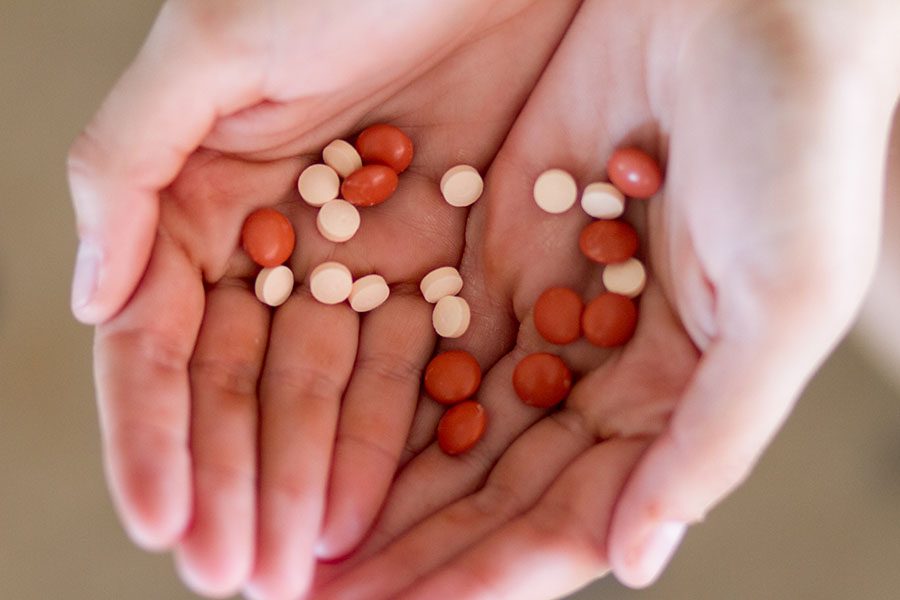Change the focus
Senior’s experience with Adderall presents new perspective
Photo by Alyssa Kift
November 28, 2017
The chair goes up on its back legs as the teacher looks accusingly at her hyperactive student, the lone indication that his position will get him in trouble. He puts the chair legs back on the ground, but begins to tap his pencil on the wooden desk. She walks to her desk and makes a note of his actions. He knows his mother will be called. For some students, paying attention does not come easily. In many cases, medications are prescribed to help solve the problem; nearly 8.4 million children and adolescents are on some variant of psychiatric drugs in the United States. Adderall, for the majority of its prescription users, succeeds in helping them reach their potential. For some students, like senior Connor Howell, medicine isn’t the answer. “My grades slipped,” Howell said. “I don’t remember most of that time.” The ADHD drug can cause some users to develop depression or suicidal thoughts, and doctors urge patients to talk about these issues.
After being prescribed medicine for his attention problems, Howell began to sense that something wasn’t right. His demeanor changed drastically. “It made me walk around like a zombie, I was a lot more depressed,” Howell said. “Instead of dealing with the depression itself, it suppressed it and put it in the corner. It would come back and hit hard.” Despite not being able to remember his exact actions during the year-long span he spent on Adderall, Howell is able to remember the way the drugs made him feel. These effects have made a lasting impact on his opinion of prescription drugs. “It’s a constant need. You’re addicted; you’re dependent on it. It kills you,” Howell said. “You aren’t sad and you aren’t happy; you’re nothing. You aren’t anything– you’re just there. You just exist. You don’t do anything.” “My mom would see how I was affected. I would just collapse, screaming, crying,” Howell said. “She emptied out the whole drug cabinet. [She] threw it all away and I haven’t had anything since; just a solid stop.” After his first-hand experience with Adderall, Howell’s beliefs in the benefits of medication have been greatly affected. “It’s insanely over-prescribed,” Howell said. “Some people do have disorders that they need some medication for. That’s fine; but don’t throw the ten-year-old kid who’s acting up on Adderall. He’s a kid, it’s what they do.” His beliefs are deeply rooted in the feelings he processed while taking such prescriptions. The personality changes he endured assured him that his experience was negative. “It’s not good because I didn’t know who I was. I’d get in more trouble because I didn’t feel anything. If I [acted] up horribly, maybe [I’d] feel something,” Howell said. “The spiral keeps going down and down and you just feel dead inside more than you do without [the medicine].” Howell’s mother began to notice a change in her son’s behavior while using the medications.In addition to his negative feelings towards prescriptions in his life, Howell has developed a new method of coping and how to prevent those negative feelings. “High school changes you. I just think it’s better to deal with it,” Howell said. “A lot of who you put yourself around will help dealing with [depression]. Environment has a lot to do with how you react.” Howell’s experience with Adderall, despite its ineffectiveness, has altered his outlook on life and how he should approach any issues that may occur. “As long as you’re in a better environment, you have the right state of mind. I’m not going to be Connor, the depressed kid. I’m going to be Connor, the kid who happens to have depression,” Howell said. “You have to deal with it and decide it’s not going to be all you are.”
















